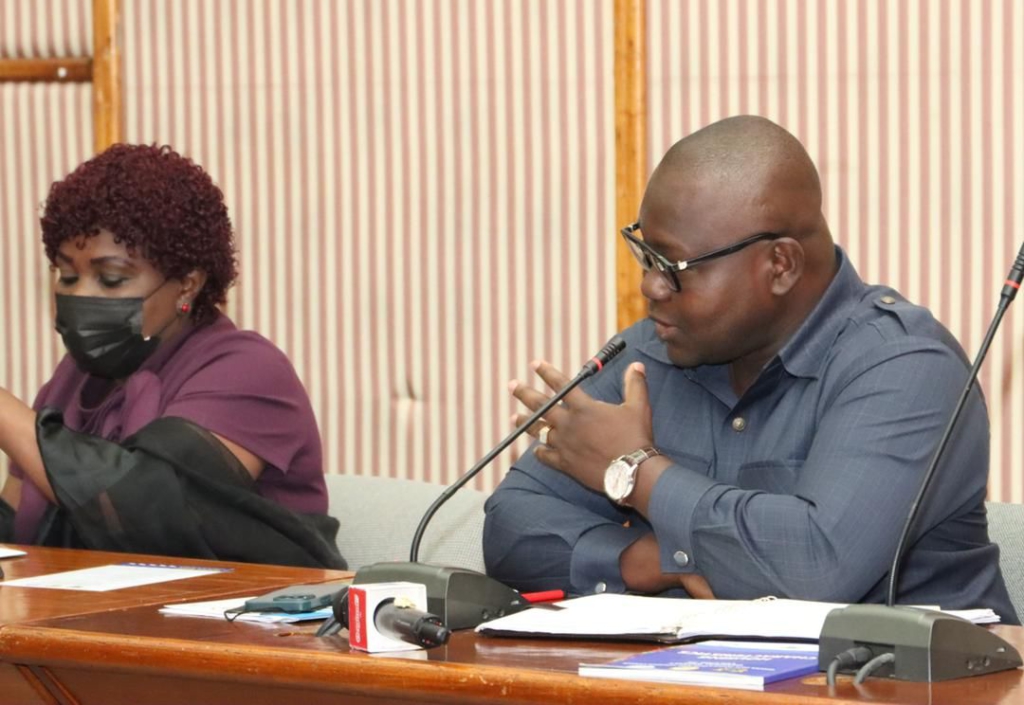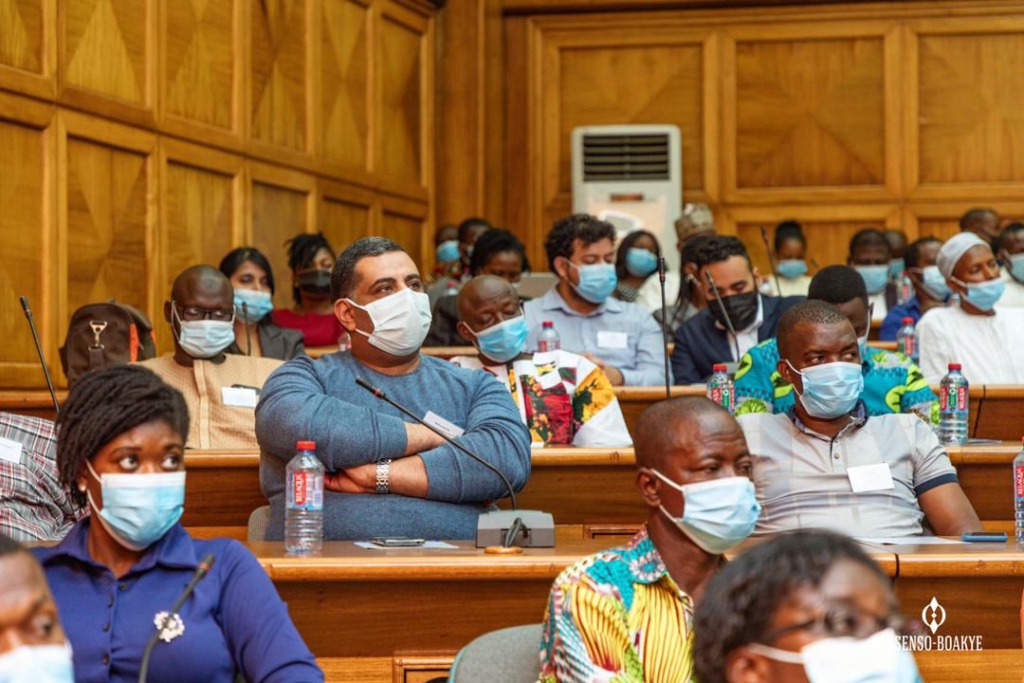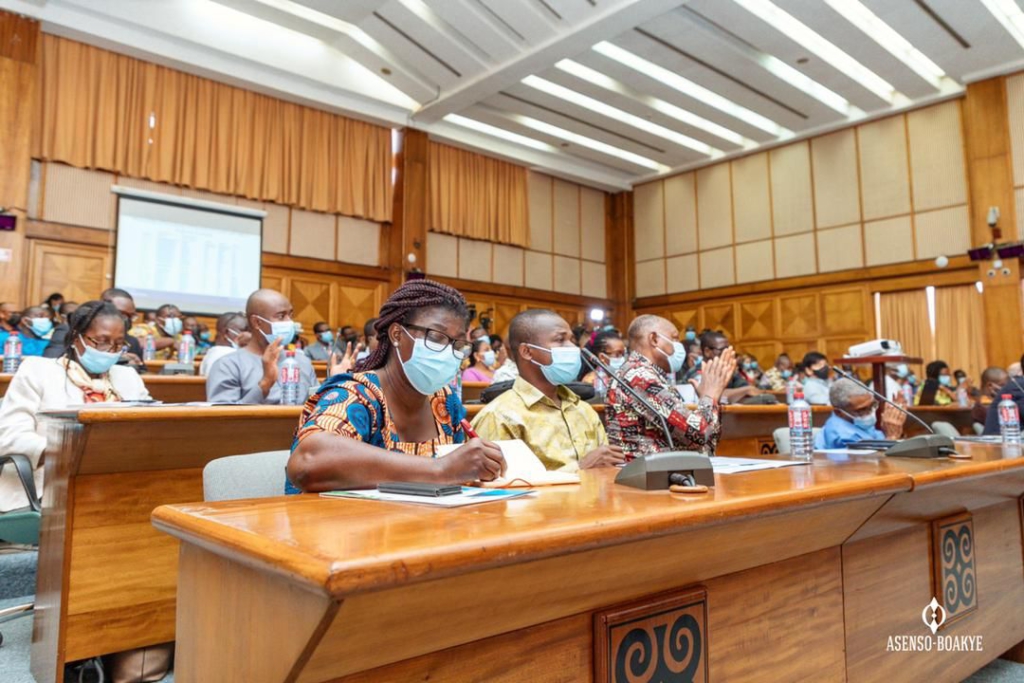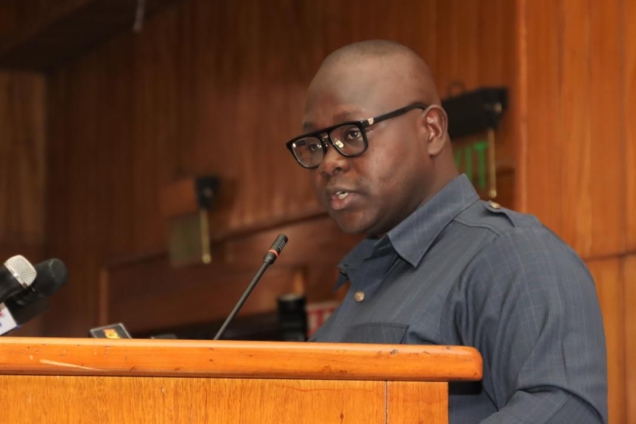Minister for Works and Housing, Francis Asenso-Boakye has described the new data on housing that puts the national housing deficit at 1.8 million, a 33 percent reduction from the previous 2.8 million as great news.
He added that this is one that will further inspire the sector Ministry to commit to its new housing programmes that seek to further bridge the deficit and address the country’s housing challenges.
Research from the Ghana Statistical Service (GSS) indicates that the country’s housing deficit in the last 50-year period continually witnessed an upward trend from a figure of 1 million to 2.8 million from 1950 to 2010.

However, the 2021 Population and Housing Census data on structures, housing conditions, and facilities as presented by the GSS reveals a reversal in the housing deficit by 33 percent.
This, according to GSS, points to possibly some of the interventions that are happening both from the governmental point of view and from the private sector point of view.
Speaking at the presentation of the 2021 Population and Housing Census General Report on Housing Characteristics today in Accra, Asenso-Boakye observed the challenges people have to face in order to own a decent, quality, and most importantly, affordable accommodation.
The 2021 Population and Housing Census indicates that 12.7% of the total housing structures are vacant with variations across the 16 administrative regions.

“The percentage of vacant housing units reported in Greater Accra mentioned during the presentation provides evidence for our growing concern about the number of exclusive high-rise apartments that are out of the price range of the average person in the country," he noted.
The Minister indicated that the affordability concerns are the reason the government has committed to introducing new policies that seek to reduce the cost of owning a decent accommodation by 40 percent.
Adding that “the Ministry, will soon launch its new affordable housing programme where Government will make available land, tax exemptions and other social amenities such as electricity, access roads etc. for private developers towards the construction of affordable housing facilities.”

Despite the reduction in the national housing deficit, the GSS data also captured the quality of housing units with the use of unconventional structures such as kiosks and metallic containers as housing units seen to be on the rise and accounting for about 21.3 percent of housing stock, per the provisional results released last year.
Mr Asenso-Boakye said while this requires a multi-sectorial approach to addressing the challenge, the Ministry will work with the GSS to contextualise the available statistics, explain the patterns and trends to better serve the housing needs of the population.
Latest Stories
-
New AI Community Center opens in Accra as Google unveils $37m in Africa AI commitments
2 minutes -
We will enforce traffic laws to curb accidents- Dorcas Affo-Toffey
3 minutes -
KNUST researchers develop fish sausage and nuggets from Supaku
7 minutes -
From Paper to Planting: Advans Ghana champions Climate Action with 1000 tree seedlings
8 minutes -
Volta NDC hails mid-year budget as catalyst for transformation
17 minutes -
Scandals and Reform in Ghana’s Security Sector: Opportunities arising from Revelations by Ministers for the Interior and Defence (Part II)
18 minutes -
GTEC to prosecute fake honorary doctorate holders
20 minutes -
BoG Governor rallies support for Islamic banking in Ghana, says it’s ethical
21 minutes -
Police foil trafficking plot, rescue 16 scam victims in Ga South
23 minutes -
530 additional River Guards commissioned as Minister Buah renews galamsey fight
47 minutes -
Education in limbo at Manso enclave due to anti-galamsey taskforce’s approach – Small-scale miners
48 minutes -
One dead, several others injured in clash of gangs at Mpasaaso in A/R
58 minutes -
Understanding Uterine Fibroids: A hidden threat to women’s health and fertility
1 hour -
Can Nigeria beat South Africa, Morocco, and Rwanda to host Africa’s Grand Prix?
1 hour -
E-Vibes musical band series to feature Secondi Band
1 hour

